Tradies’ lifelong earnings higher than many university grads’
Studying at university may seem like a wise career move but the reality is many graduates are finishing their degrees with a large HECS debt and losing out financially compared with school leavers who embarked on a trade.

NSW
Don't miss out on the headlines from NSW. Followed categories will be added to My News.
- 10 tradies that earn more than median Aussie salary
- High uni dropout rates for Gillards ‘additional’ uni students
Studying at university may seem like a wise career move but the reality is many graduates are finishing their degrees with a large HECS debt and losing out financially compared with school leavers who embarked on a trade.
The Daily Telegraph has compared the average career earnings of a person with a general bachelors degree with a tradesperson and found tradies compare favourably.
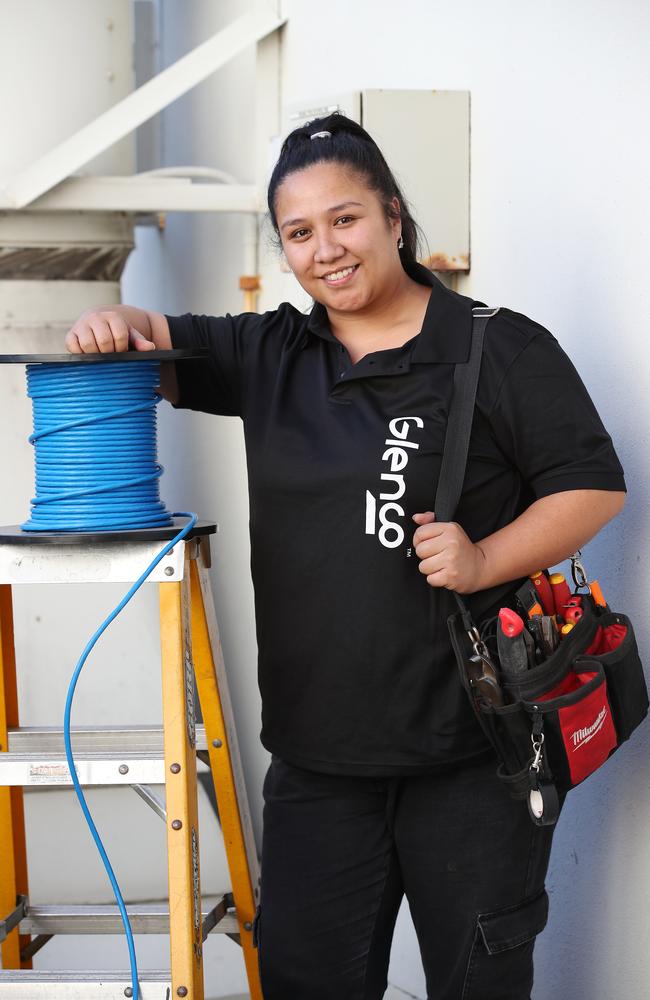
Figures from the federal government’s Job Outlook website show a machinist could earn $3.12 million over a 40-year career, an electrical distribution worker $3.02 million, an electrician $2.91 million and $2.38 million for a plumber.
Meanwhile a university-qualified advertising executive could earn $2.8 million over 40 years, a counsellor $2.76 million and a human resources manager could expect to earn $2.79 million.
Experts say with the steady proliferation of university qualified-job applicants, employers are instead more focused on people who are job-ready, have actual skills and an employment history.
Revelations of a pay gap between degree educated and tradie workers comes after the Productivity Commission released a report last week which found the Gillard government’s decision to create unlimited university positions saddled less capable students with debt and poor job prospects.
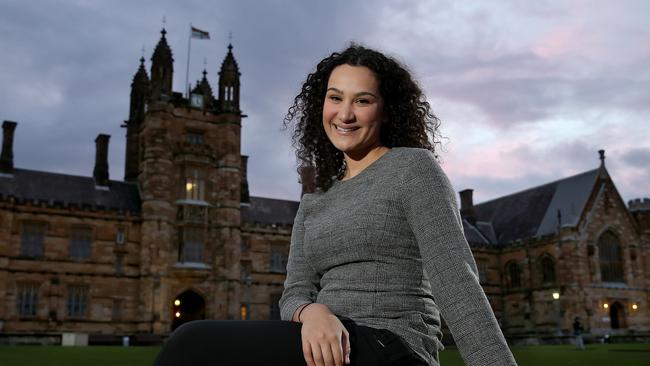
These students were far more likely to drop out of their course and had lower wage performance than those who never even attended a university.
A report into vocational education and training (VET) by social demographer Mark McCrindle found that from 2008 to 2014 the proportion of bachelor degree graduates in full-time employment fell from 86 per cent to 68 per cent.
Meanwhile, in contrast, 78 per cent of VET graduates were employed after training, and 82 per cent of apprenticeship graduates had found a job after training.
“The question we need to ask is are we unduly investing or pushing students towards higher education when we are such a growth nation in an infrastructure or population sense,” Mr McCrindle said.
“The report we wrote for Skilling Australia shows nine of the top-10 fastest-growing jobs over the next five years are obtained through a VET qualification.”
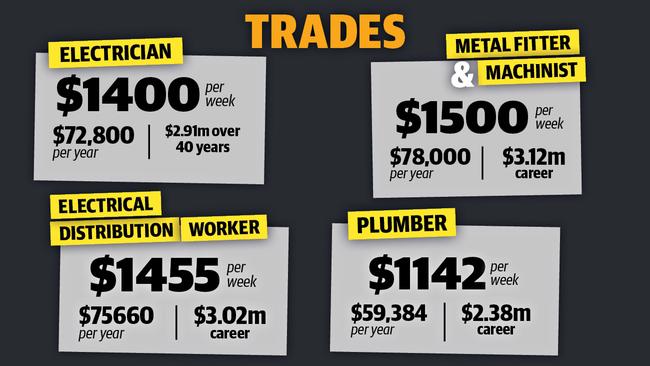
New research released last week by Sydney recruitment firm Withyouwithme calculates over the next five years more than 2.5 million individuals will graduate from universities across Australia.
Withyouwithme estimates there will be 173,000 more creative arts graduates by 2023 but only an extra 22,800 jobs — meaning 86.86 per cent of these graduates will not find a job in their field.
“The results show that the number of graduates in every industry is set to outstrip the number of jobs which will be created, making the chances of securing a job in a graduate’s industry a difficult proposition,” the report said.
“Individuals are invariably ending up in underemployment and jobs which don’t match their potential.”
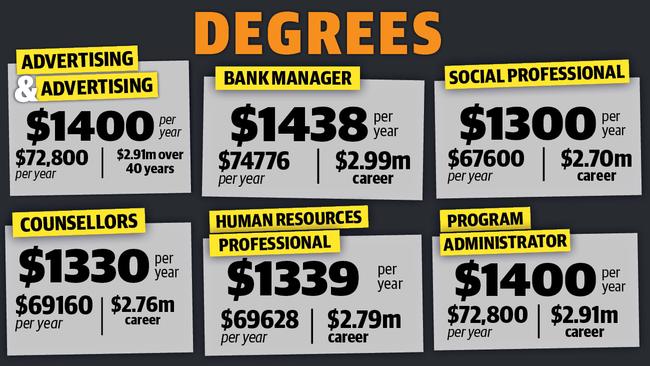
NSW Minister for Skills and Tertiary Education Geoff Lee said university education is not the most suitable option for everyone.
“For many highly paid jobs, vocational education and training is a better pathway to a successful career,” he said.
“People undertaking apprenticeships and traineeships, especially in construction, are in high demand in our state.”
Mr McCrindle said due to the large number of graduates with degrees, employers were now more focused on “the pragmatics” — like being job-ready, having actual skills and an employment history.
Second-year electrician apprentice Barbara Fetolofai, 24, said she worked for three years in office administration for electrical company Glenco before making the switch to being a sparky.
“I was really interested in doing a trade, so I asked my boss, and that year he put me in a van,” she said.
“I really like it. It’s not repetitive plus you learn quite a bit being on the job.”
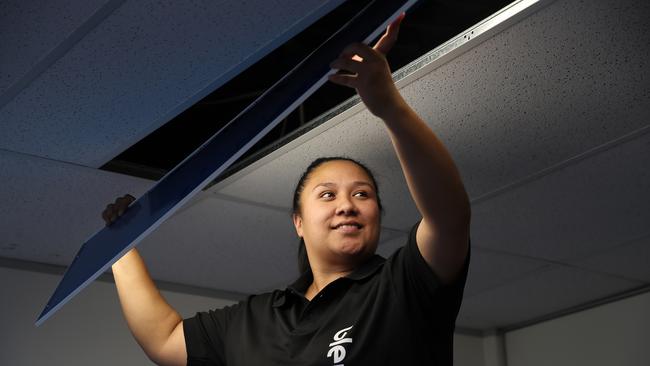
University of Sydney student Julia Kokic, 19, said she chose to do a Bachelor of Arts and Bachelor of Advanced Studies majoring in politics, international relations and Indonesian because they were her passions.
“I think it’s important to study something you enjoy or you burn out,” she said.
“I am concerned about job prospects to some extent but I think you can give yourself the best chance by being pre-emptive with things like networking and exploring opportunities early.” The second-year uni student also works part-time, and said she had not yet decided her exact career plans but believed success as a graduate came down to personal motivation.
Originally published as Tradies’ lifelong earnings higher than many university grads’


